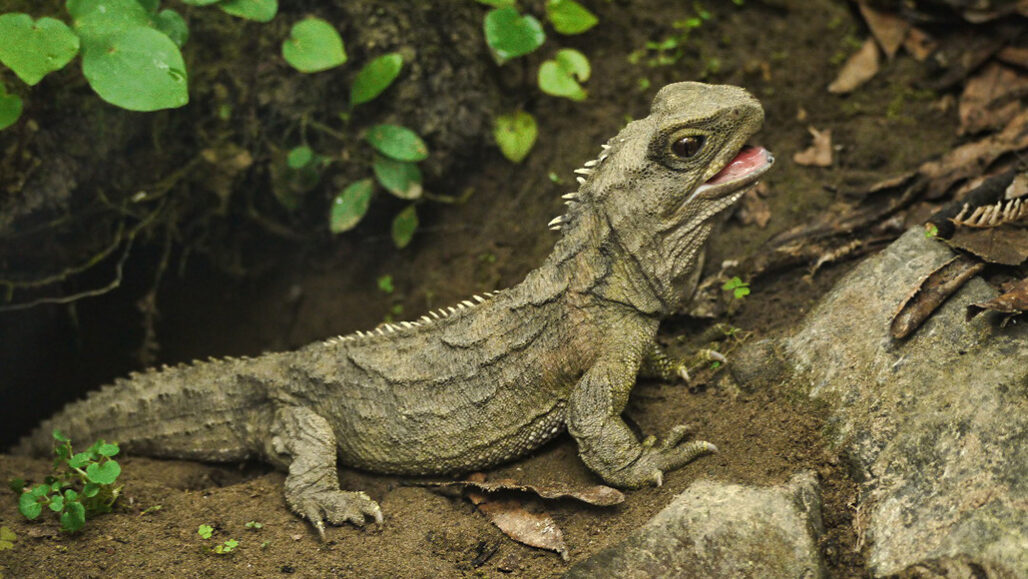
Tuataras (Sphenodon Punctatus) are ancient lizard that come from a group that flourished during the time of the dinosaurs. These lizards that are native to New Zealand have many unique traits such as the ability to withstand cold, a century-long life span, or basically being impervious to infectious disease. Studied by Neil Gemmell, an evolutionary biologist at the University of Otago in Dunedin and an international team of researchers the lizards genome was able to me assembled. The genome taking up 5 gigababes, or some 5 billion DNA base pairs in length is 2/3 bigger than humans'. The scientist involved have been able to identify the genes possibly connected to the lizards biological quirks including their long lives. The identified genes show that the tuataras have many genes involved in producing selenoproteins which help protect against aging and cellular deterioration. Furthermore, the lizards have a high number of TRP genes which make proteins that can help an organism regulate temperature and most likely give the tautarus their ability to tolerate cold. More study of these animals will allow for application of these finding to humans and society as a whole.
Second Link: https://www.nature.com/articles/s41586-020-2561-9
That is so interesting, that scientist were able to to figure out that the DNA base is 2/3 bigger than humans. I'm so glad that there is going to be more research done on the animals.
ReplyDelete